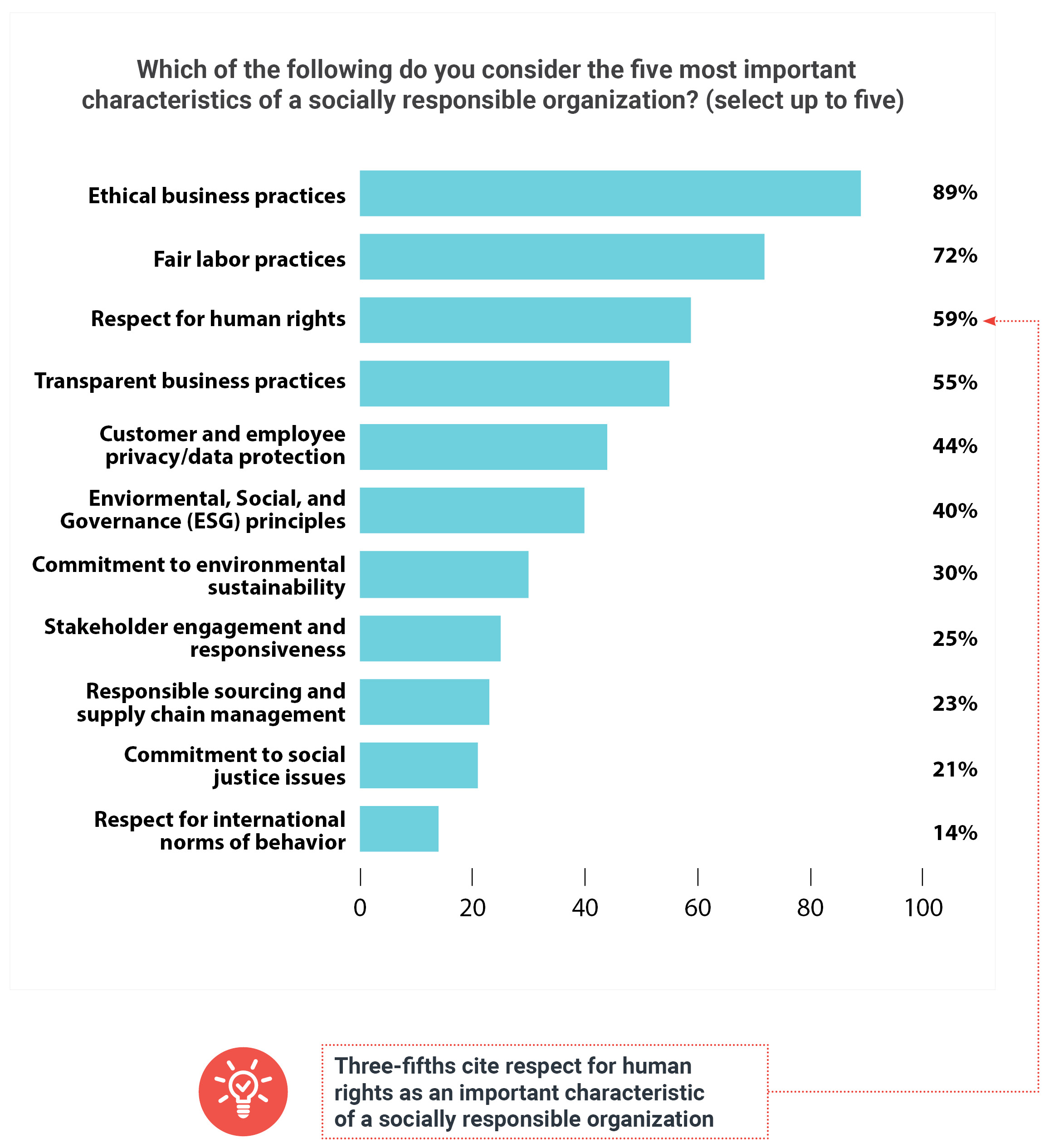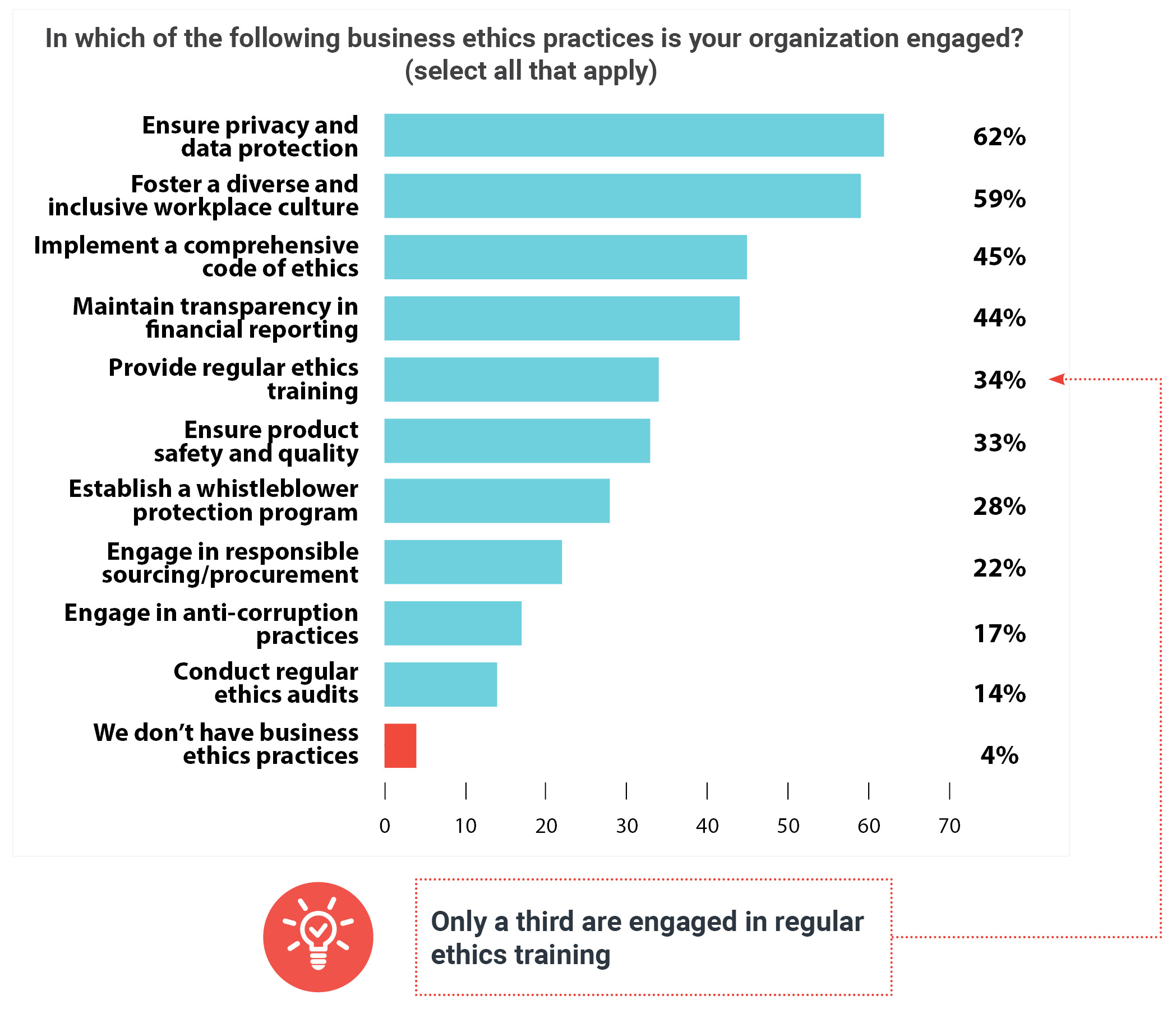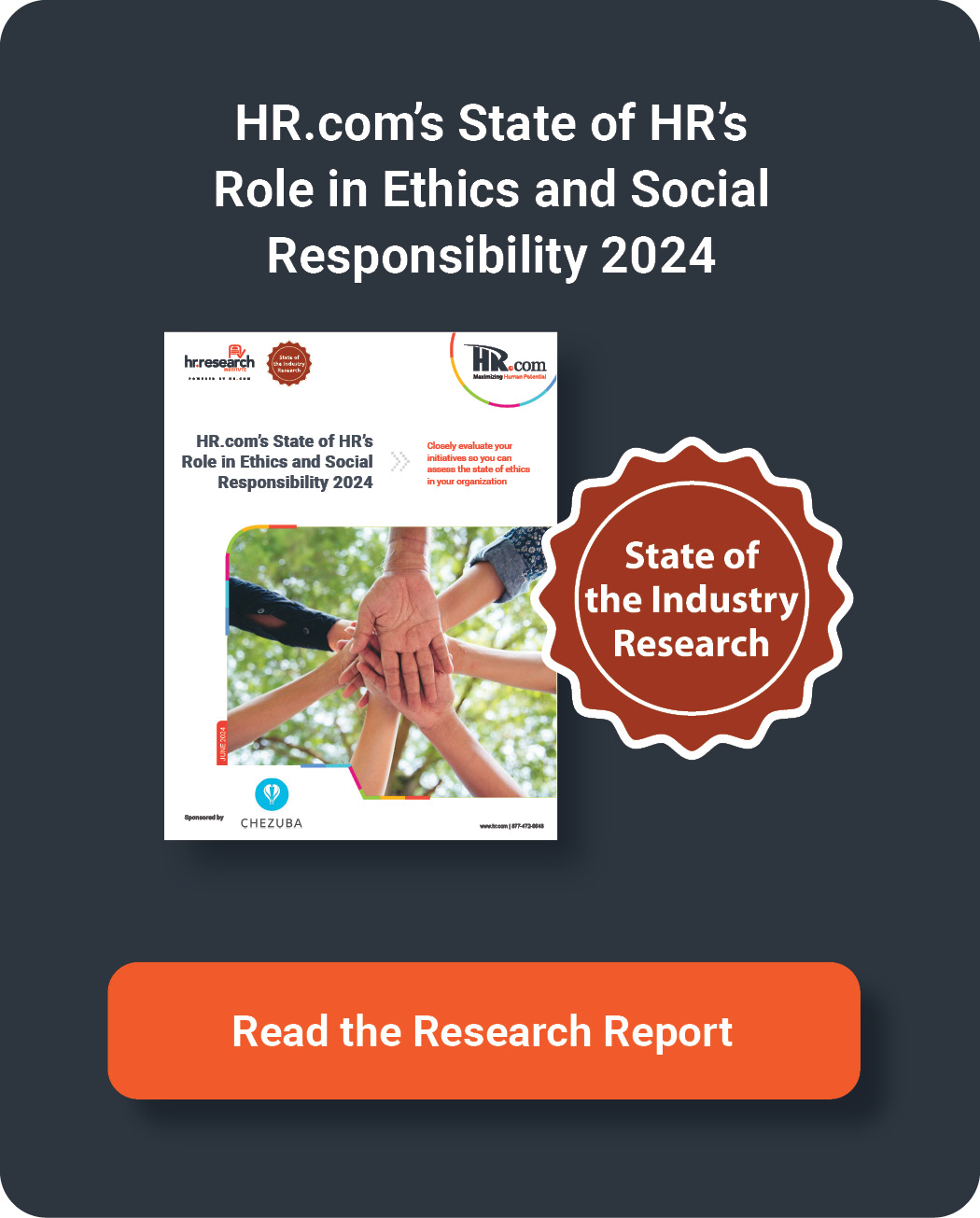HR.com’s State of HR’s Role in Ethics and Social Responsibility 2024
Closely evaluate your initiatives so you can assess the state of ethics in your organization
Posted on 06-25-2024, Read Time: 6 Min
Share:

So, where does the truth lie? To find out, we examined specific attitudes, practices, and policies related to business ethics and CSR, focusing on the pivotal role HR plays in these areas.
Our study emphasizes the growing importance of business ethics and CSR in talent management. Are ethics and social responsibility initiatives effectively tied to key organizational goals like brand development and attracting top talent?
Key Findings
- Respondents prioritized ethical business practices as central to CSR.
- Most organizations consider themselves ethical and socially responsible.
- Implementing effective ethics and CSR initiatives presents various challenges.
- Responsibility for business ethics and CSR typically falls on the CEO and CHRO.
- Ethical and socially responsible organizations often see multiple benefits.
In this survey, we aimed to clarify the relationship between business ethics and CSR. Our findings confirm that ethical business practices are foundational to corporate social responsibility.

Current State of Business Ethics/CSR
- 94% of respondents perceive their organizations as at least moderately ethical and socially responsible, with 63% rating this as high or very high.
- Despite high perceptions, unethical actions are more prevalent than assumed based on actual practices.
- Ethical misconduct is a leading cause for CEO turnover in larger companies, and 23% of employees have observed unethical behavior.
- Smaller organizations are perceived as more ethical and socially responsible than larger ones, with 83% of respondents in small organizations rating their ethics and CSR highly, compared to 59% in mid-size and 57% in large organizations.
A Scarcity of Critical Ethics/CSR Practices
Despite high self-ratings, few organizations implement comprehensive ethics practices:- 45% have an established and comprehensive code of ethics.
- 34% provide regular ethics training.
- 14% conduct regular ethics audits.
- 44% maintain transparency in financial reporting.
- Just over a quarter have whistleblower protections.

- Fair labor/workforce practices (58%)
- Employee wellness (56%)
- Diversity, equity, and inclusion practices (48%)
The Most Problematic Areas:
The most widely cited business ethics-related challenges are:- Conflicts of interest (34%)
- Discrimination and bias (31%)
A recent report shows significant issues with microaggressions and harassment, especially among women, who often do not report these issues due to fear of retaliation. Only 8% report whistleblower retaliation as an issue.
HR’s Role in Ethics and CSR
- The CHRO (60%) and CEO (59%) are seen as most accountable for maintaining ethical behavior.
- The CEO sets the tone for corporate ethics, develops policies, promotes transparency, monitors compliance, and engages with stakeholders.
- Integrating CSR initiatives with employee experiences is a key role for HR, highlighted by 51% of respondents.
While business ethics and CSR are the right things to do, they also make business sense. Some of the top results reported by respondents include a stronger brand and reputation (48%), better employee experiences (47%), the ability to attract talent (34%), and the ability to retain talent (31%).
For more detailed insights and key takeaways, read the complete report.
Error: No such template "/CustomCode/topleader/category"!


